Vladimir Uralsky
출생 : 1887-08-27, Orenburg, Orenburg Governorate, Russian Empire [now Orenburg Oblast, Russia]
사망 : 1955-05-15

A biographical film about the fate of the great Russian mechanic and creator of aerodynamics Nikolai Egorovich Zhukovsky.

Kirichenko
This is a dramatic story of the restoration of the mines after the liberation of Donbass from the Nazis during the Second World War.
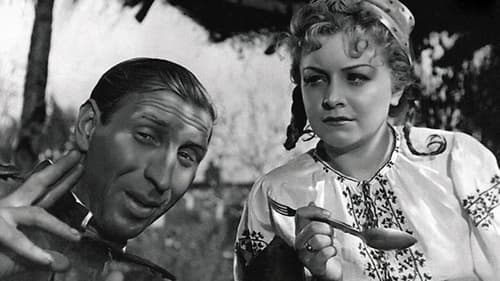
Gvozdaryov
A comedy about an army squad guarding the fake airport during WWII.

They met in Moscow - a shy swineherd Glasha and shepherd Musaib. Long and difficult will be their way to love and a new meeting in this classic Soviet musical comedy.

Fighter pilots Sergei and Nikolai test new planes together and try to beat each other in everything. Their rivalry began back in school, when both were passionate about the pretty classmate Varey. A tragic accident led Sergei to complete blindness. Varya, who has long loved him, has a difficult decision: to become a wife of a disabled person ...

Filipp Filippovich Burov - lighthouse keeper
О буднях морской пограничной заставы в середине 30-х годов. На маленьком тихоокеанском острове несет службу гарнизон пограничной охраны НКВД. Небольшой отряд бойцов мужественно защищает родную землю от нападения японских диверсантов и гонит прочь непрошенных гостей. Однажды японский эсминец высаживает десант на один из советских островов. Захватчикам помогают завербованные ими предатели. Но пограничники дают достойный отпор агрессору.

Aerograd is a 1935 Soviet film by Ukrainian director Olexander Dovzhenko, Mosfilm-VUFKU coproduction. It is a futuristic adventure story set in the Soviet Far East. Considered one of two sound masterpieces by Dovzhenko, the other being "Ivan".

Working with children led Barskaya to create superb direct sound and an inspired style of shooting. Don’t look for conventional cinematic syntax here. The film is chaotic in the way that Soviet films still knew how to be, and Langlois couldn’t help but be seduced by its rebellious spirit, its anarchy and love of children, comparable to Vigo’s Zero de conduite.
As well as being a film made with and for children, it offers a complex take on Western society. Pre-Nazi Germany is not named as such but is carefully reconstructed, possibly under advice from Karl Radek, and children offer a playful reflection of class struggle – doubly excluded, as proletarians and as minors. “They play in the same way that they live”, one intertitle says. The interaction between their comical games and the yet more ludicrous ones played by adults is developed on several levels.
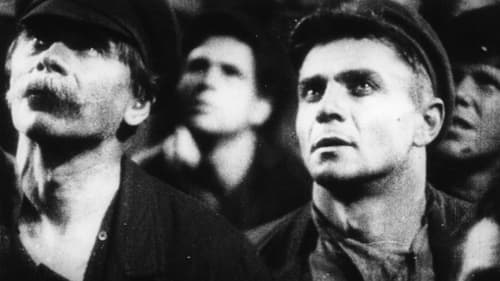
Outskirts is an internationally renowned masterpiece of early sound cinema. In a remote Russian village during World War I, colorful and nuanced characters experience divided loyalties: family loyalty vs. personal desire, nationalism vs. transcendent humanism.

Himself
Soviet film based on Dostoevsky's autobiographical novel of his prison experiences in Tsarist days.

The story of a British POW who converts to communism.
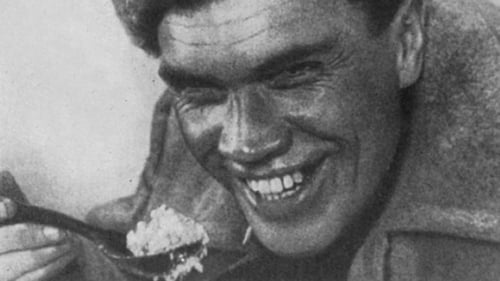
Young hobos are taken to a new camp to become good Soviet citizens. This camp works without any guards, and it works well. But crooks kill one of the young people when they try to damage the newly built railroad to the camp.

Wounded soldier
As a response to criticism for the allegedly excessive “mass appeal” of his earlier epic STORM OVER ASIA (1928), Vsevolod Pudovkin unleashed his flair for experimentation in what was supposed to be the director’s first sound feature. Everything went wrong: technical problems forced him to complete the film as a silent; viewers were baffled by the lack of a recognizable plot; then, the ideological climate of the Soviet Union changed. He was now being blamed for catering to bourgeois taste! Time has come to set the record straight. Here’s lyrical cinema at its best, deliberately operatic and yet intimate as it matches the characters’ inner life with the solemn rhythms of nature, and depicted through breathtaking black-and-white photography. A sensation at last year’s Pordenone fest, Pudovkin’s long-forgotten swan song to the art of montage is resurrected by Gabriel Thibaudeau’s emotionally charged live music performance. –PCU (USSR, 1930, 75m)
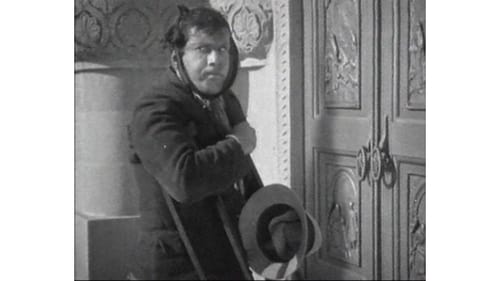
Guide (as V. Uralsky)
The priests, stock market officials, and police conspire to squeeze income out of pilgrims come to see relics of a Christ like figure. A pair of con men try to pass of a resurrected saint.

Zakhar
Ukrainian agitprop film from 1929 that was banned and long forgotten until its rediscovery in the 1970s, imaginatively shot by the gifted cameraman Oleksii Pankratiev, whose panoramic long shots feature dynamic compositions. The background, barren field and bare sky, raise the agricultural subject matter to the level of an epic poem. Using innovative editing, Shpykovskyi transformed an incredibly simple plot into an avant-garde work. Created the same year as Earth (Zemlya), the film forms a paradoxically conceptual, ideological, and aesthetic pair with Dovzhenko’s movie.

The village youth organize a collective farm in the place of the monastery garden.

Employee
Two young women fight over the love of a hunter.

Naturally, the circus milieu of 2 Buldy 2 (1929) encourages stunts. A father and son, both clowns, are to perform together for the first time, but the civil war separates them, and the elder Buldy, tempted for a moment to acquiesce to the White forces, casts his lot with the revolution. At the climax Buldy Jr. escapes the Whites thanks to flashy trampoline and trapeze acrobatics; the gaping enemy soldiers forget to shoot.

Life is short and full of oppression, but that doesn't mean Parasha can't find love and laughter when she leaves her country home to take a job as a maid in the overcrowded, overworked, and underpaid world in the big city.

Peasant
The momentous film stars Mykola Nademskyi as the grandfather of Tymish (Semen Svashenko), whom he alerts to secret treasure buried in the mountains of Zvenygora – Treasure that rightfully belongs to his homeland. The film wonderfully blends both lyricism and politics and uses its central construct to build a montage praising Ukrainian industrialization, attacking the bourgeoisie, celebrating the beauty of the Ukrainian steppe and retelling ancient folklore. Said Sergei Eisenstein of the film, "As the lights went on, we felt that we had just witnessed a memorable event in the development of the cinema".

During the Civil War following the Bolshevik Revolution, a Red cavalry officer is warned by a staffer from headquarters about his dangerous attraction to the female leader of a band of Cossacks, a violent woman who is aroused by killing.
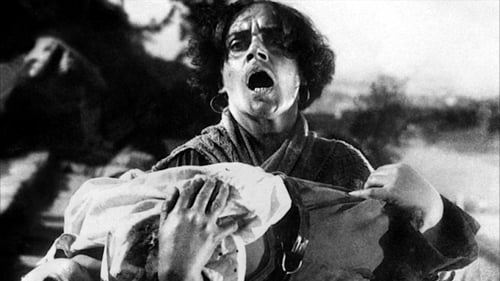
1905년, 제정 러시아 시대. 전함 포템킨의 수병들은 장교들의 학대와 열약한 근무 조건에 불만을 가지게 된다. 썩은 고기를 식량으로 사용한 사실은 그들의 반란의 기폭제로 작용한다. 수병을 없애버리라는 장교의 명령에 포병들은 거역하고 수병과 포병은 힘을 합쳐 동지가 된다. 전함을 완전히 장악한 이들은 승리감에 젖어 흑해 오뎃사 항구로 향하고 이 소식을 전해들은 시민들은 수병들을 환영하러 부두로 나온다. 한편 짜르의 명령을 받은 정예 코자크 군대가 출동하여 그들에 반항하는 시민들에게 무차별 공격을 가한다. 전함 포템킨에 탄 수병들을 환영하려 했던 시민들은 갑작스런 군대에 의해 피를 흘리며 쓰러져 간다. 수 많은 희생자가 나지만, 분노한 시민들은 수병들과 합세하여 봉기, 짜르의 군대와 싸우며 혁명의 대열에 서는데...

A small town postal official allows a military officer to take his lovely daughter away to St. Petersburg, assuming the man will do the right thing and marry her.Instead, a future of scandal and tragedy await her.
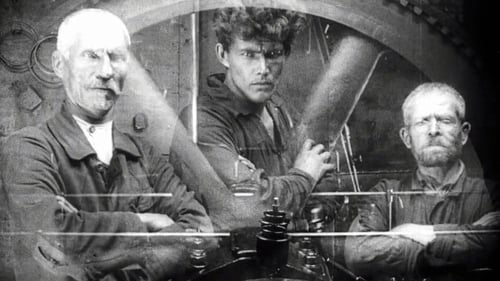
겉으로는 평온해 보이는 공장. 하지만 저 깊은 수면 아래에서 노동자들은 파업을 준비하고 있다. 파업의 기미를 보고받은 경찰은 스파이를 보내 노동자들을 염탐하게 한다. 그러던 어느날 측미계가 없어지자 공장 측은 한 노동자에게 누명을 씌우게 되고, 그는 자신의 결백함을 보이기 위해 자살하고 만다. 이 사건을 계기로 노동자들의 분노는 폭발하고 마침내 파업이 시작된다. 노동자들은 자신의 요구사항을 공장주에게 말하지만 그들은 수용하지 않는다. 파업이 장기화됨에 따라 극심한 생활고로 노동자들의 가정에서는 불화가 잦아질 뿐 아니라 가재 도구를 내다 팔기도 한다. 또한 스파이들의 회유와 협박에 넘어간 어느 노동자가 지도자를 밀고하기에 이른다. 경찰은 파업을 해결하기 위해서 부랑자들을 시켜 노동자들을 선동해 어용 주점을 방화, 약탈하도록 한다. 그들의 계획적인 음모를 눈치챈 노동자들은 집으로 돌아가려 하지만, 경찰들의 수공으로 심한 타격을 받고 활동가들과 지도자들은 모두 체포된다. 이 사건으로 권력을 가진 자들은 더욱더 철저하게 노동자들을 탄압할 수 있도록 군의 파견을 결정하고 잔혹한 진압을 자행하는데...

Union Man
A 1925 Soviet comedy sponsored by the Soviet Finance Ministry, with a plot promoting the new economy. A small-town tailor, Petya Petelkin (Ilyinsky), bought a lottery ticket and handed it to his landlord, widow Shirinkina (Deykun) who wants to marry him. Petya is a hard-working tailor trying to start his own business. He is also in love with Katya (Maretskaya), whom he wants to marry. He has to survive a cascade of funny situations in the unstable Soviet reality, before his romance with Katya comes to a happy ending.

Soldier
A young man travels to Mars in a rocket ship, where he leads a popular uprising against the ruling group with the support of Queen Aelita, who has fallen in love with him after watching him through a telescope.




















